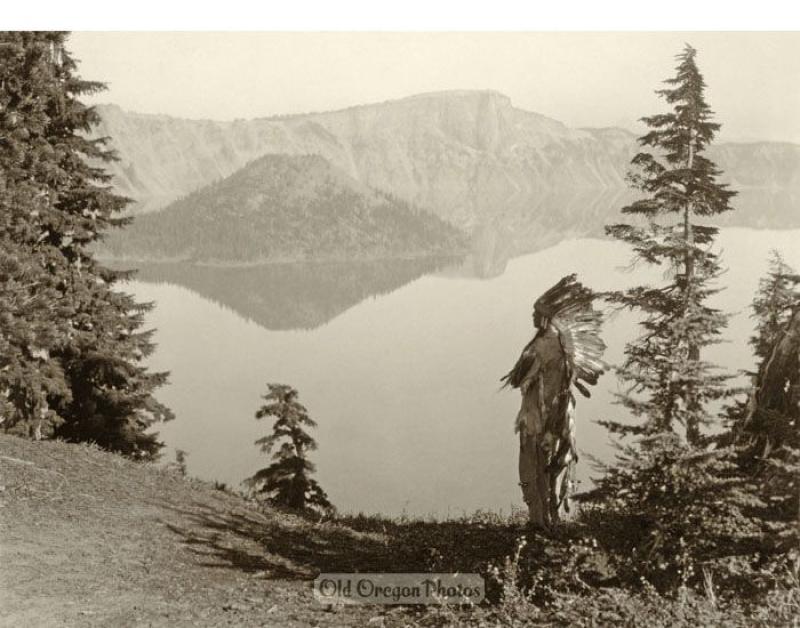Oregon tribe celebrates as court lifts decades-long hunting and fishing restrictions | Oregon | The Guardian



US and state acknowledge that 1980 agreement was 'biased and distorted' against Confederated Tribes of Siletz Indians
Drumming made the floor vibrate and singing filled the conference room of the Chinook Winds Casino Resort in Lincoln City, on the Oregon coast, as hundreds in tribal regalia danced in a circle.
For the last 47 years, the Confederated Tribes of Siletz Indians have held an annual powwow to celebrate regaining federal recognition. This month's event, however, was especially significant: it came just two weeks after a federal court lifted restrictions on the tribe's rights to hunt, fish and gather - restrictions tribal leaders had opposed for decades.
"We're back to the way we were before," Delores Pigsley, the Siletz chair, said. "It feels really good."
The Siletz is a confederation of over two dozen bands and tribes whose traditional homelands spanned western Oregon, as well as parts of northern California and south-western Washington state. The federal government in the 1850s forced them on to a reservation on the Oregon coast, where they were confederated together as a single, federally recognized tribe despite their different backgrounds and languages.
In the 1950s and 60s, Congress revoked recognition of over 100 tribes, including the Siletz, under a policy known as "termination". Affected tribes lost millions of acres of land as well as federal funding and services.
"The goal was to try and assimilate Native people, get them moved into cities," said Matthew Campbell, the deputy director of the Native American Rights Fund. "But also I think there was certainly a financial aspect to it. I think the United States was trying to see how it could limit its costs in terms of providing for tribal nations."
Losing their lands and self-governance was painful, and the tribes fought for decades to regain federal recognition. In 1977, the Siletz became the second tribe to succeed, following the restoration of the Menominee tribe in Wisconsin in 1973.
But to get a fraction of its land back - roughly 3,600 acres (1,457 hectares) of the 1.1m-acre (445,000-hectare) reservation established for the tribe in 1855 - the Siletz tribe had to agree to a federal court order that restricted their hunting, fishing and gathering rights. It was only one of two tribes in the country, along with Oregon's Confederated Tribes of Grand Ronde, compelled to do so to regain tribal land.
The settlement limited where tribal members could fish, hunt and gather for ceremonial and subsistence purposes, and it imposed caps on how many salmon, elk and deer could be harvested in a year. It was devastating, tribal chair Pigsley recalled: the tribe was forced to buy salmon for ceremonies because it couldn't provide for itself, and people were arrested for hunting and fishing violations.
"Giving up those rights was a terrible thing," Pigsley, who has led the tribe for 36 years, said earlier this year. "It was unfair at the time, and we've lived with it all these years."
Decades later, Oregon and the US came to recognize that the agreement subjecting the tribe to state hunting and fishing rules was biased, and they agreed to join the tribe in recommending to the court that the restrictions be lifted.
"The Governor of Oregon and Oregon's congressional representatives have since acknowledged that the 1980 Agreement and Consent Decree were a product of their times and represented a biased and distorted position on tribal sovereignty, tribal traditions, and the Siletz Tribe's ability and authority to manage and sustain wildlife populations it traditionally used for tribal ceremonial and subsistence purposes," attorneys for the US, state and tribe wrote in a joint court filing.
Late last month, the tribe finally succeeded in having the court order vacated by a federal judge. A separate agreement with the Oregon department of fish and wildlife has given the tribe a greater role in regulating tribal hunting and fishing.
As Pigsley reflected on those who died before seeing the tribe regain its rights, she expressed hope about the next generation carrying on essential traditions.
Alaska governor awards $1m in state funds to Indigenous group backing oil drillingRead more
"There's a lot of youth out there that are learning tribal ways and culture," she said. "It's important today because we are trying to raise healthy families, meaning we need to get back to our natural foods."
Among those celebrating and praying at the powwow was Tiffany Stuart, donning a basket cap her ancestors were known for weaving, and her three-year-old daughter Kwestaani Chuski, whose name means "six butterflies" in the regional Athabaskan language from south-western Oregon and north-western California.
Given the restoration of rights, Stuart said, it was "very powerful for my kids to dance.
"You dance for the people that can't dance anymore," she said.
Explore more on these topics
- Oregon
- West Coast
- California
- Washington state
- Indigenous peoples
- Native Americans
- news
Off topic comments will be deleted without warning




The ‘’termination period’’ mentioned in the article took place between 1953 and 1973 where tribes lost their Indian status and 2.9 million acres of prime land, with the tribes in this article much of the land they lost was prime timber land.
There are still tribes fighting to regain their status back and their land.
I'm sorry, I had to laugh at another warriors comment asking me if I thought that DHS or HHS or the whole government was now racist.
Now??? WTF???
Sorry, the other article was locked.
[deleted]
No worries, SP
Yes. Started the day before yesterday.
Could we maybe bring back the Huns?
Sauce for the gander?
Clotheslines ? after all they are multipurposeful
Another way of saying racist as hell as was the illegal termination act of 1953,
Another small step forward, but what's concerning me right now is how things are going to go next year.
We’ll see, but I don’t have a lot of hope.
it'll be a different kind of open season ...